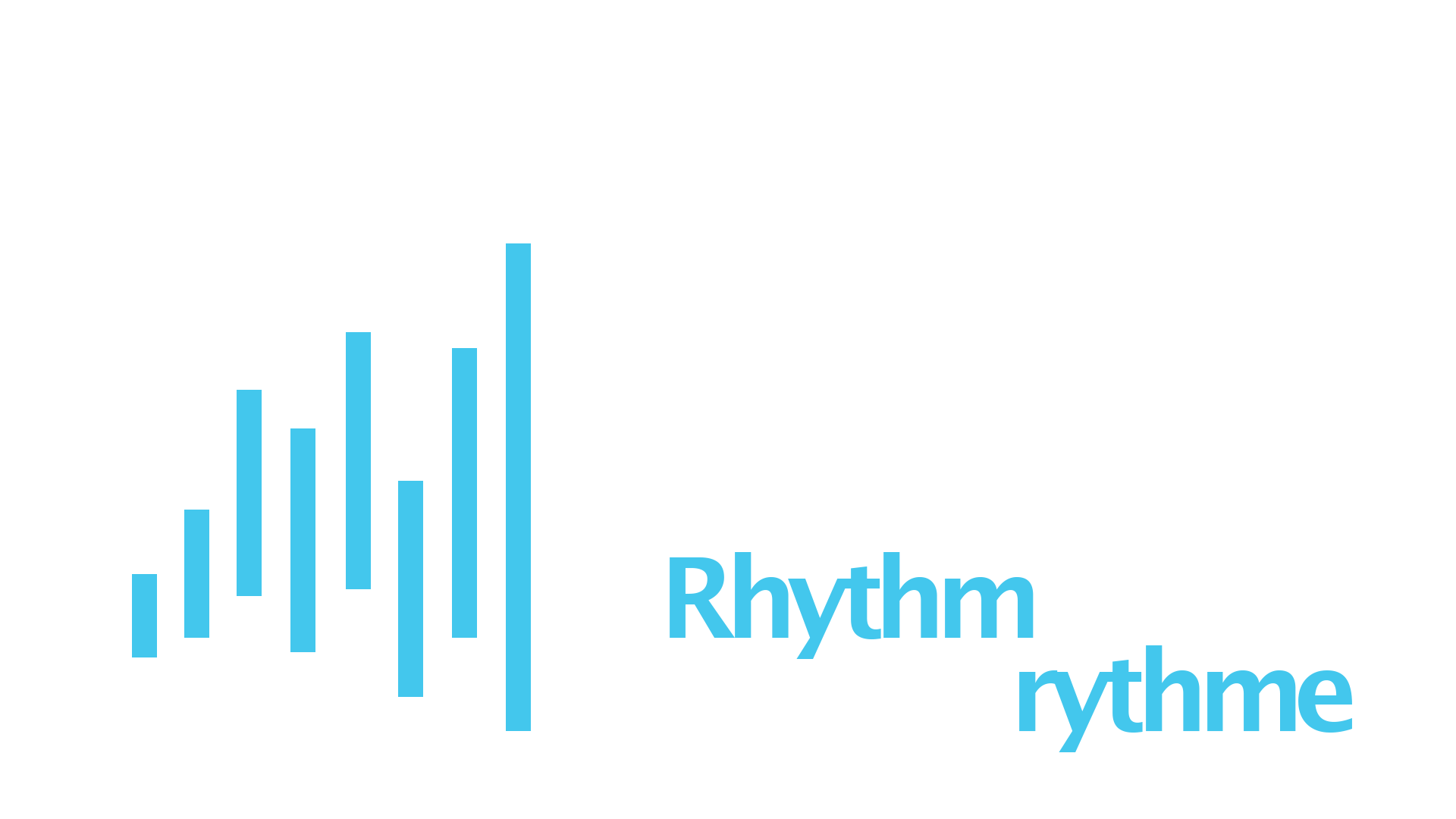Greetings everyone,
We are thrilled to welcome you to The Sources of Rhythm, our insectoral meetings on rhythm, at the Université de Montréal. It is an honour to welcome you on the brand-new MIL campus, centrally-located on the island of Montréal, which strengthens the city’s worldwide reputation as a hub of knowledge and creativity.
Thank you all for coming here and representing so many diverse disciplines! Today, we welcome researchers and students in engineering, humanities, natural sciences, social sciences and health sciences who will be sharing their views on rhythm to contribute to creating new knowledge through the cross pollination of ideas and expertise.
As part of this unique transdisciplinary and intersectoral collaboration, which aims at exploring the sources of rhythm, we have the privilege of welcoming the five 2018 Killam Prize winners. These researchers, who have succeeding in demonstrating the idea of the shared notion of rhythm in areas of knowledge a priori distant, will be sharing the fruits
of their research today and highlighting the benefits of intersectoral collaborations.
We would like to thank the Cinémathèque québécoise and the Canada Council for the Arts for their invaluable support. We would also like to thank the moderators who were tasked with putting the ideas shared by our keynote speakers into perspective, the expert panelists who are furthering the discussion on intersectorality as well as all the participants who have agreed to discuss the importance and pertinence of intersectorality in light of today’s complex issues and tomorrow’s challenges.
We hope that you will enjoy every moment of this
exceptional gathering, and every new encounter.
MARIE-JOSÉE HÉBERT
Vice-Rector, Research, Discovery, Creation and Innovation
Full Professor, Faculty of Medecine, Université de Montréal
Shire Chair, Renal Transplantation and Regeneration
JULIE CARRIER
Associate Vice-Rector, Research and Studies
Vice-Rectorate, Research, Discovery, Creation and Innovation
Vice-Rectorate, Student Affairs and Studies
Full Professor, Department of Psychology, Université de Montréal
ANDRÉ GAUDREAULT
Full Professor, Department of Art history and cinematographic studies (Cinema and video games sector), Université de Montréal
Canada Research Chair in Film and Media Studies and founder of Laboratoire CinéMédias
Director, TECHNÈS, International Research Partnerhsip, GRAFICS and PRAGM/e (Programme de recherche sur l’archéologie et la généalogie du montage/editing) and the Observatoire du cinéma au Québec
SANTIAGO HIDALGO
Director, Laboratoire CinéMédias
Adjunct Professor, Department of Art history and cinematographic studies, Université de Montréal
Director, Cinema and Technology, Amsterdam University Press
Killam Prize Laureates, Prestigious Guests
The Canada Council for the Arts awards five prestigious Killam Prizes annually. Worth $100,00 each, the prizes are given to eminent Canadian researchers and scientists who actively contribute to research in industry, government organizations and universities. They recognize the contributions of exceptional women and men in the disciplines of humanities, social sciences, natural sciences, health sciences and engineering.
The prizes, which are among the most distinguished in Canada, celebrate the achievements of researchers who boldly and tenaciously push the boundaries of our understanding of the world today.
The Killam Prizes are part of the greater Killam Trusts, which are used to fund scholarships and research at four Canadian universities, one neurological institute and the Canada Council for the Arts. The Killam Trusts are valued at $500 million, $70 million of which is allocated to the Canada Council for the Arts.

THURSDAY, DECEMBER 5
8:30 to 9 a.m.
WELCOME AND REGISTRATION
9 to 9:20 a.m.
OPENING REMARKS
GUY BRETON, Rector, Université de Montréal
MARIE-JOSÉE HÉBERT, Vice-Rector, Research, Discovery, Creation and Innovation
ANDRÉ GAUDREAULT, Full Professor, Department of Art history and cinematographic studies and Canada Research Chair in Film and Media Studies
SANTIAGO HIDALGO, Adjunct Professor, Department of Art history and cinematographic studies, Director, Laboratoire CinéMédias
9:20 to 10:30 a.m.
“THE IMPORTANCE OF THE IMPROBABLE”
Discussion with the Killam Prize winners on the sources of their intersectoral research on rhythm:
ANDRÉ GAUDREAULT, Université de Montréall, 2018 Killam Prize winner, Humanities.
VLADIMIR HACHINSKI, Western University, 2018 Killam Prize winner, Health Sciences.
WALTER HERZOG, Universitey of Calgary, 2018 Killam Prize winner, Engineering.
JANET WERKER, University of British Columbia, 2018 Killam Prize winner, Social Sciences.
Moderator : MARIE-JOSÉE HÉBERT
10:30 to 10:40 a.m.
PRESENTATION OF POSTER DESIGNERS
10:40 to 11 a.m.
BREAK
11 to 11:45 a.m.
CONFERENCE BY VLADIMIR HACHINSKI
Western University, 2018 Killam Prize winner, Health Sciences; moderator : KARIM JERBI, Associate Professor, Department of Psychology, Université de Montréal, and Canada Research Chair in Systems Neuroscience and Cognitive Neuroimaging.
11:45 a.m. to 12:30 p.m.
CONFERENCE BY D’ANDRÉ GAUDREAULT
Université de Montréal, 2018 Killam Prize Winner, Humanities; moderator : JULIE CARRIER, Full Professor, Department of Psychology, Université de Montréal and Associate Vice-Rector, Research and Studies
12:30 to 2 p.m.
LUNCH AND POSTER SESSION
2 to 2:45 p.m.
CONFERENCE BY WALTER HERZOG
University of Calgary, 2018 Killam Prize Winner, Engineering; moderator : NATALIA NUÑO, professeure, Full professor, École de technologie supérieure
2:45 to 3:45 p.m.
ROUND TABLE: “What challenges does an intersectoral approach present
for teaching, research, creativity and practice?”
LOUISE BÉLIVEAU, Vice-Rector, Student and Academic Affairs
DENIS RIBOUILLAULT, Associate Professor, Faculty of Arts and Science, Department of Art history and cinematographic studies
OUANESSA YOUNSI, Professor, Department of Psychiatry and Addiction, Psychiatrist at the Hôpital Sacré-Coeur de Montréal and Finalist, 2017 Governor General’s Literary Awards in the Non-Fiction category for her book Soigner Aimer
FRANÇOIS-JOSEPH LAPOINTE, Full Professor, Faculty of Arts and Science, Department of Biological Sciences
Moderator : SIMONE DALLA BELLA, Full Professor, Faculty of Arts and Science, Department of Psychology
3:45 to 4:15 p.m.
BREAK
4:15 to 5:15 p.m.
LIGHTS, CAMERA, ACTION!
Screening of the Prologue of the film La Roue (Abel Gance, 1923), a key work in the “era of rhythm” in film history. Presentation by NATHALIE FERNANDO, Dean, Faculty of Music, Université de Montréal and LOUIS PELLETIER, Researcher-in-residence, Cinémathèque Québécoise. Musical accompaniment: CHANGHEE LEE, pianist and PhD student, Faculty of Music, Université de Montréal. Musical and technical advisor: GABRIEL THIBAUDEAU, composer, pianist, conductor, specialist in silent film accompaniment and pianist-in-residence at the Cinémathèque Québécoise.
FRIDAY, DECEMBER 6
8:30 to 8:55 a.m.
WELCOME AND REGISTRATION
8:55 – 9 a.m.
THE UNIVERSITÉ DE MONTRÉAL COMMUNITY REMEMBERS
1 minute of silence in the memory of 14 young women murdered at Polytechnique Montreal, 30 years ago, on December 6th, 1989.
9 to 9:55 a.m.
MANIFESTO FOR INTERSECTORAL COLLABORATION
Discussion led by TARA LAPOINTE, Director, Outreach and Business Development, Canada Council for the Arts.
FRÉDÉRIC BOUCHARD, Dean, Faculty of Arts and Science, Université de Montréal
MARIE-JOSÉE HÉBERT, Vice-Rector, Research, Discovery, Creation and Innovation, Université de Montréal
ROSEANN Ô’REILLY RUNTE, President and CEO, Canada Foundation for Innovation
LOUISE POISSANT, Scientific Director, Fonds de recherche du Québec – Société et culture
RÉMI QUIRION, Chief Scientist of Québec
9:55 to 10:10 a.m.
PRE-RECORDED CONFERENCE BY JAMES PINFOLD
University of Alberta, 2018 Killam Prize Winner, Natural Sciences
10:10 to 10:30 a.m.
BREAK
10:30 to 11:15 a.m.
CONFERENCE BY JANET WERKER
University of British Columbia, 2018 Killam Prize winner, Social Sciences;
moderator: ISABELLE PERETZ, Full Professor, Department of Psychology, Université de Montréal, Canada Research Chair in Neurocognition of Music, Founder, International Laboratory for Brain, Music and Sound Research (BRAMS).
11:15 to 11:45 a.m.
ROUND TABLE
Discussion with the 4 Killam Prize winners on future collaborative projects:
ANDRÉ GAUDREAULT, Université de Montréal, 2018 Killam Prize, Humanities
VLADIMIR HACHINSKI, Western University, 2018 Killam Prize, Health Sciences
WALTER HERZOG, University of Calgary, 2018 Killam Prize, Engineering
JANET WERKER, University of British Columbia, 2018 Killam Prize winner, Social Sciences
Moderator : JULIE CARRIER
11:45 a.m.
CLOSING REMARKS (the event will end at 11:55 a.m.)
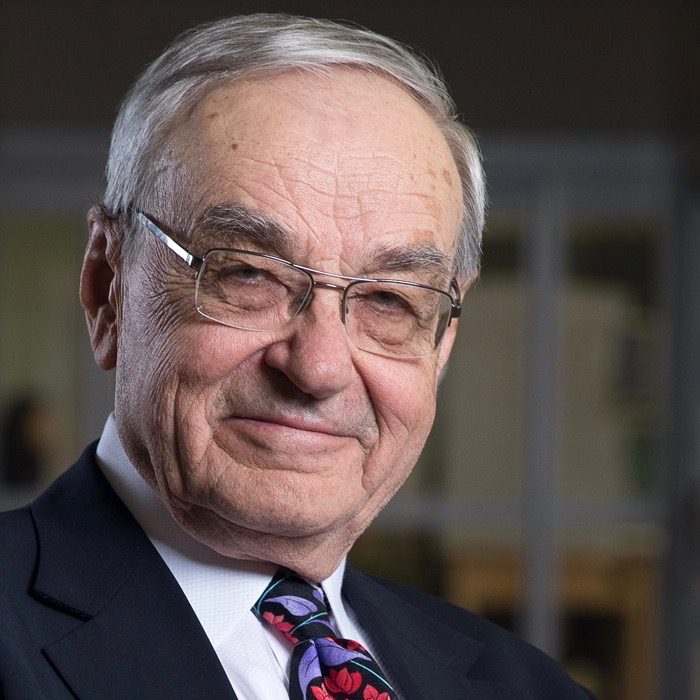
Vladimir Hachinski, CM, MD (University of Toronto), DSc, FRCPC, FRSC, is Professor of Neurology and Epidemiology and Distinguished University Professor at Western University, Canada. He has transformed the understanding, diagnosis, treatment and prevention of the two greatest threats to the brain: stroke and dementia. He introduced a clinical diagnostic tool, the Hachinski Ischemic Score for identifying the treatable components of dementia. He founded, with John W. Norris, the world’s first successful acute stroke unit, now the standard of care. He was Editor-in- Chief of Stroke, the leading publication in the field. He has published 18 books and over 800 frequently-cited scientific articles. He was the President of the World Federation of Neurology. In 2017 he received the Prince Mahidol Award in Public Health and in 2018 was inducted in the Canadian Medical Hall of Fame.
Vladimir Hachinski
Vladimir Hachinski, CM MD FRCPC DSc FRSC, Distinguished University Professor, Dept of Clinical Neurological Sciences, London Health Sciences Centre
Distinguished lecture
Thursday, December 5th, 11 a.m.
“Brains, arts and sciences: We got rhythm!”
Is rhythm a common underlying principle? Brain rhythms and dysrhythms.
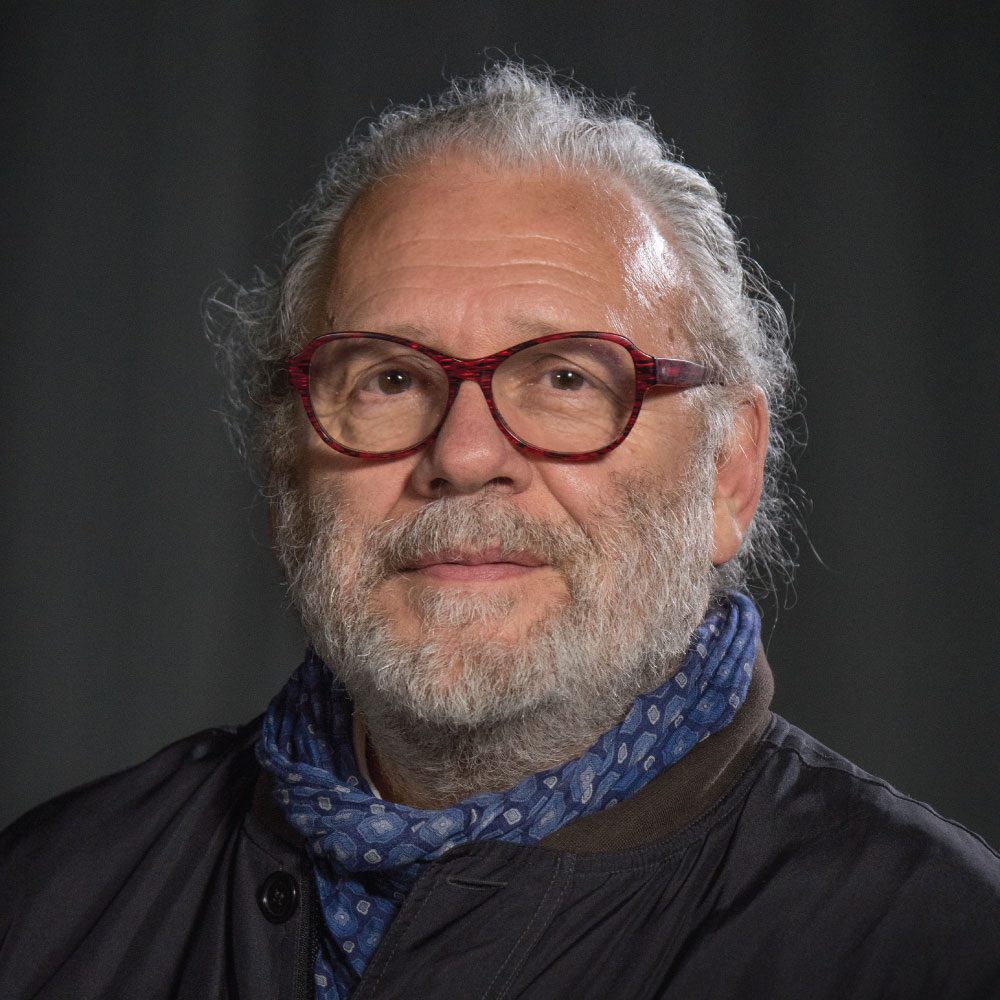
André Gaudreault is a professor in the Department of Art history and cinematographic studies at the Université de Montréal and Canada Research Chair in Film and Media Studies. He is the founder of the Laboratoire CinéMédias, where he heads the Partenariat international de recherche sur les techniques et technologies du cinéma (TECHNÈS), the Programme de recherche sur l’archéologie et la généalogie du montage/ editing (PRAGM/e) and the Groupe de recherche sur l’avènement et la formation des identités médiatiques (GRAFIM). A seasoned film studies specialist and pioneer of film narratology, his current research focusses on the advent of montage, the phenomenon of broadcasting operas in movie theatres, technological innovations viewed from an “archaeological” standpoint and the impact of digital on the media world.
Thanks to his work, which has been the subject of numerous books, articles and communications, he has been appointed to the Royal Society of Canada (2014) and named a Chevalier of the Ordres des Arts et des Lettres de la République française (2016). He has also received many prizes and awards, including the Prix international Jean-Mitry (2010), a Guggenheim Fellowship (2013), the Prix Léon-Gérin (2017), the Killam Prize in Humanities (2018) and an honorary doctorate from the Université Paul-Valéry Montpellier 3 (2019).
André Gaudreault
André Gaudreault, Professor, Department
of Art history and cinematographic studies, Université de Montréal and Canada Research Chair in Film and Media Studies
Distinguished lecture
Thursday, december 5th, 11:45 a.m.
“Film and paradoxical sleep: an intersectoral paradox?”
If we consider that rhythm is a sine qua non of “cinematic language”, it comes as no surprise that this notion gave rise to film theory in the 1920s when many films showed “rapid-fire images” that triggered “rapid eye movement” in the spectator. Can we conclude that there is more than just a simple analogy between the moviegoer and the dreamer in paradoxical (or REM) sleep?
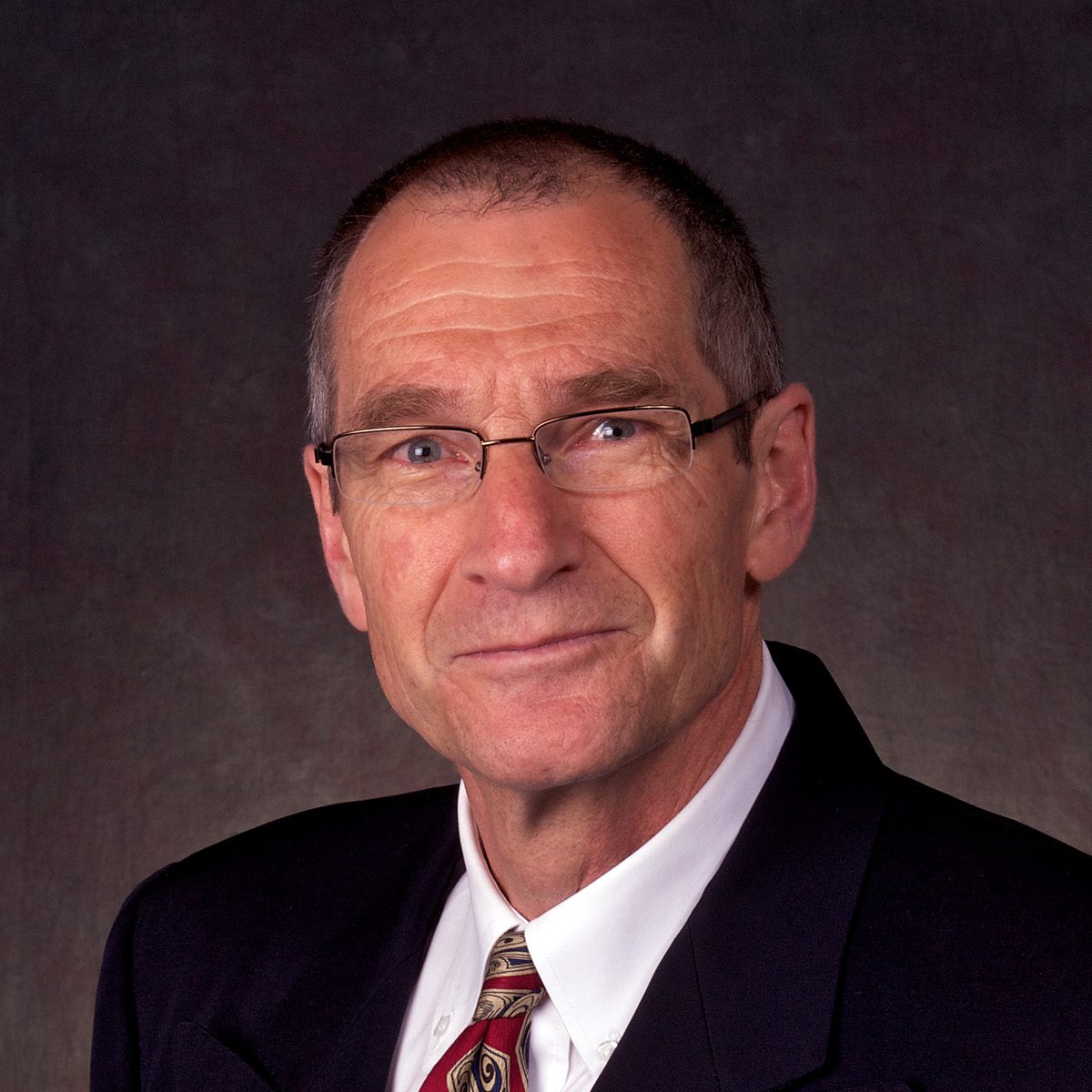
Dr. Herzog did his undergraduate training in Physical Education at the Federal Technical Institute in Zurich, Switzerland (1979), completed his doctoral research in Biomechanics at the University of Iowa (USA) in 1985, and completed postdoctoral fellowships in Neuroscience and Biomechanics in Calgary, Canada in 1987. Currently, Dr. Herzog is a Professor of Biomechanics with appointments in Kinesiology, Medicine, Engineering, and Veterinary Medicine, holds the Canada Research Chair for Cellular and Molecular Biomechanics, and is appointed the Killam Memorial Chair for Inter-Disciplinary Research at the University of Calgary. His research interests are in musculoskeletal biomechanics with emphasis on mechanisms of muscle contraction focusing on the role of the structural protein titin, and the biomechanics
of joints focusing on mechanisms of onset and progression of osteoarthritis. Dr. Herzog is the recipient of the Borelli Award from the American Society of Biomechanics, the Career Award from the Canadian Society for Biomechanics, the Dyson Award from the International Society of Biomechanics in Sports, the Muybridge Award from the International Society of Biomechanics, and recently received the Killam Prize in Engineering from the Canada Council for the Arts for his contributions to Biomedical research. He is the past president of the International, American and Canadian Societies for Biomechanics. He was inducted into the Royal Society of Canada in 2013.
Walter Herzog
Dr. Walter Herzog, Professor, Faculty of Kinesiology and Department of Mechanical and Manufacturing Engineering, University of Calgary and Canada Research Chair for Cellular and Molecular Biomechanics.
Distinguished lecture
Thursday, December 5th, 2 p.m.
“Molecular and Whole Body Rhythms in Human Movement”
The human body and its movement present several types of rhythms, including arrhythmia, the heartbeat, and motor neuron innervation. In this talk I will be exploring the integration of molecular and whole body rhythms in human movement, especially in relation to sports.
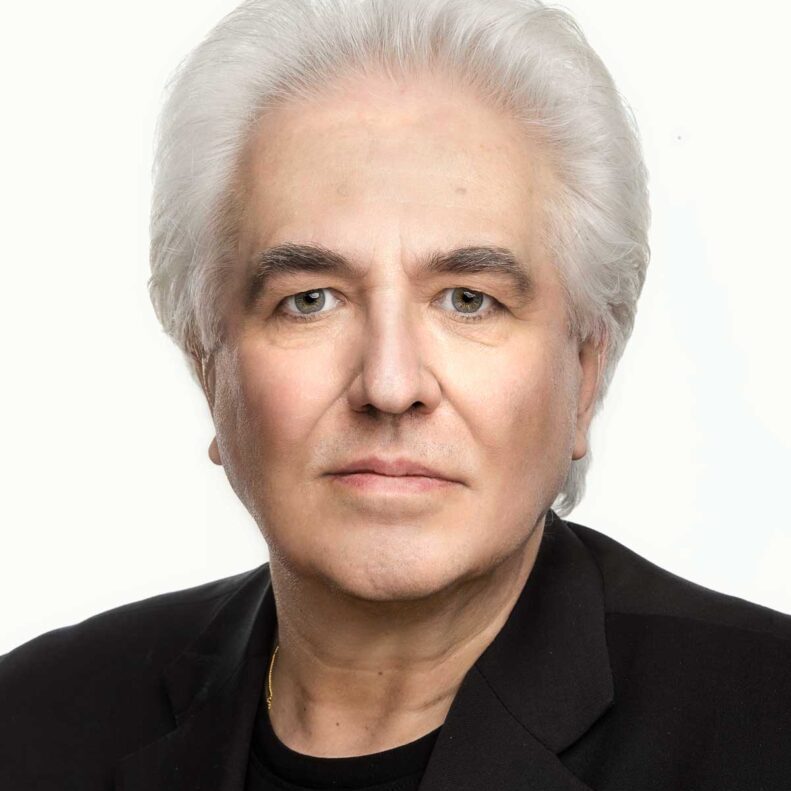
On a lifelong quest to discover fundamental truths about our universe
Field of Study: Natural Sciences
“The most important insight I have gleaned about the process of researching into the fundamental nature of matter is best described by Einstein’s famous quote: “Imagination is more important than knowledge.”
James Pinfold, is an internationally renowned particle physicist who, in 1997, became the youngest ever leader of an international collider experiment. As a graduate student at University College London in 1972, Pinfold was a leader in CERN’s discovery of the neutral current, the first hard evidence for Electroweak Unification. In 1992, he became a founding member of the ATLAS Experiment at CERN’s Large Hadron Collider (LHC) that in 2012 announced the discovery of the Higgs boson. He is currently a Distinguished University Professor at the University of Alberta and leads the LHC’s newest experiment, MoEDAL, focusing his efforts on searching for new physics at the high-energy frontier and, on the cosmic frontier, searching for remnants from the birth of the universe.
James Pinfold
James Pinfold, PhD, Distinguished University Professor at the University of Alberta
Distinguished lecture (pre-recorded)
Friday 6th, 10 a.m.
“Unheard Melodies”
I will maintain that the idea of rhythm and melody in their broadest sense has played a central key role in our basic understanding of the Universe, throughout history . The melodies of the Universe are usually unheard by human ears, but can be recognized, interpreted and expressed within, for example, the realm of the physical sciences. This music of the universe, although often unrecognized, is a fundamental principle that will only be silenced when the Universe ends.
But, all forefront and fundamental creative endeavours are sensitive to these unheard melodies, to a greater or lesser extent and sometimes unknowingly. That is why, for example, artists, musicians, writers and scientists working at the forefront of the fundamental have, like sleepwalkers sharing the same dream, broadly followed a common history of ideas.
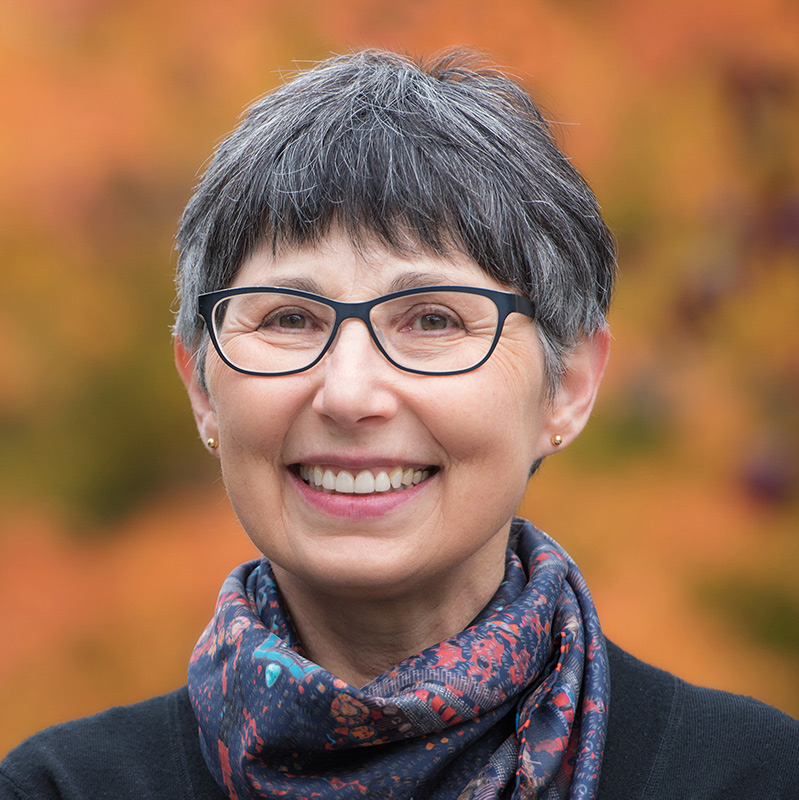
Janet F. Werker, FRSC, received her PhD in Developmental Psychology from UBC in 1982, assumed her first academic appointment immediately thereafter at Dalhousie University, and returned to UBC in 1986, where she is a University Killam Professor and Canada Research Chair in the Department of Psychology. In a rich and innovative program of inquiry stretching over 35 years, her research has shown that the foundations of language acquisition begin in early infancy – long before the first word is spoken or even understood – and that the acquisition of two or more languages simultaneously from birth is as natural as the acquisition of a single language. The impact of this work has been recognized with numerous awards over the years. Recent highlights include being elected a Fellow of the American Academy of Arts and Sciences in 2014, being awarded the SSHRC Gold Medal Impact Award in 2015, being appointed a University Killam Professor at UBC in 2016, and being honored as an Officer of the Order of Canada in 2017. In 2018, she was awarded the Canada Council Killam Prize for Research in the Social Sciences, in recognition of her lifetime of research and scholarship, and this year, 2019, she was awarded the William James Award for lifetime research contributions from the American Psychological Society.
Janet Werker
Dr. Janet F Werker, O.C., FRSC, University Killam Professor, University of British Columbia and Canada Research Chair in Developmental Psychology
Distinguished lecture
Friday, December 6th, 10:45 a.m.
“Thoughts on how rhythm might help babies break into language”
In this talk, I will consider some of what we know about the role of rhythm in language, and how infants might use that to take their first steps in language learning. I will then situate this work within broader notions of rhythm in other aspects of our daily lives.

